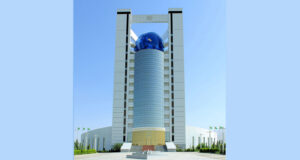TAPI Pipeline – A New Dawn of Opportunity and Growth

The start of the TAPI pipeline and related infrastructure projects marks much more than just economic development for Turkmenistan and Afghanistan. For the people living on the ground, it’s a lifeline that might profoundly affect their future and signify hope and possibilities in areas long under violence and turmoil.
With promises of 12,000 new jobs, this pipeline for Afghanistan serves not just with gas but also with much-needed employment. Imagine what that implies for a nation where war has destroyed livelihoods over decades. Families, especially in the western province of Herat, stand to gain from steady work; that stability might then permeate communities and produce improved living circumstances and long- term sense of security.
This initiative is no less significant for Turkmenistan’s population. The nation sees the pipeline as a means of not only sustaining but also expanding its economy given its huge gas reserves. Turkmenistan is making sure that its natural riches results in real advantages for its own people by interacting with markets like Pakistan and India that are ravenous for energy. For common people, that also implies improved infrastructure, more possibilities, and a better future.
Still, it goes beyond only employment and fuel. The new infrastructure—roads, power lines, fiber-optic communication—has the ability to greatly enhance daily living. Reliable power is more than just a need in Afghanistan; it’s a portal to improved healthcare, more constant education, and the possibility to run enterprises uninterrupted. For many, this might mean the difference between hardly surviving and actually flourishing.
We cannot also ignore the humanitarian assistance included into this growth. The new railway bridge demonstrates a real attempt to not only strengthen commercial links but also to meet people’s immediate needs as goods from Turkmenistan are transported to Afghanistan. Serving as a reminder that these projects, in their essence, are about people, not only politics or profits, such aid will help sustain communities while the more major developments take place.
Still, there is a cloud of doubt hovering over this advancement for all the promise. Originally scheduled for completion in 2018, the delay of the Afghanistan portion makes us consider the continuous security issues. Real obstacles exist, and so does the risk to local residents and workers who can find themselves caught in the instability’s crossfire. Ensuring safety for those engaged in these projects is absolutely crucial for their success. Without peace, even the best-meaning projects could fall short.
This pipeline in many respects represents hope—a road toward peace via common economic interests. It captures a more general goal: that countries long split by strife can unite for mutual benefit and that this kind of cooperation can bring about long-lasting transformation for their people. The family in Herat at last has continuous electricity; the Afghan worker is finding consistent job; the Turkmen engineer is making sure energy flows naturally. The essence of what these initiatives stand for is these personal narratives.
With its ability to change daily life and economies, the TAPI pipeline represents a lighthouse of what could be—if, and only if, the area can overcome its security concerns. Though the risks are great, the benefits for people of both countries are considerably more. This is about creating a future whereby people in Afghanistan and Turkmenistan might live with dignity, stability, and optimism, not about pipelines and gas.


